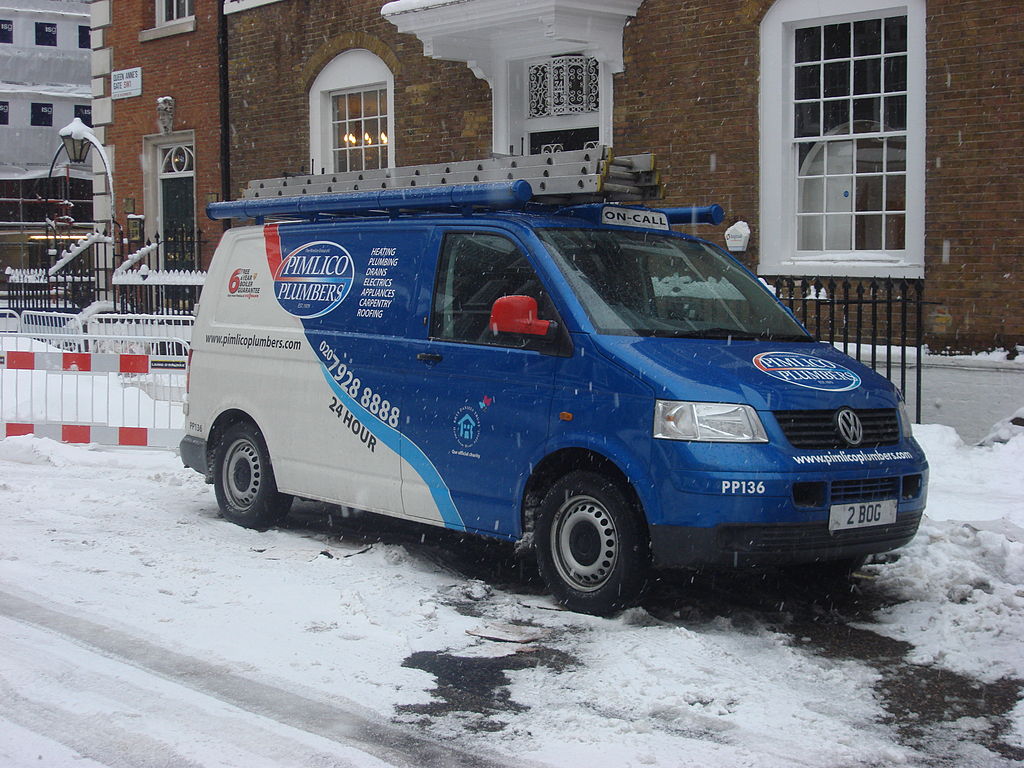Company vehicles are temperamental assets that are prone to breakdown, misuse, and potential theft. Smart business owners know that these cars, vans, and trucks need to be closely monitored. And the best way of doing so is by equipping each vehicle with the best GPS tracker for fleet operations.
But “best” means different things to different fleet owners. One might want hidden GPS trackers that are more suited to preventing theft, while another might need GPS trackers that provide valuable telematics for deeper analysis.
In this post, we’re going to go over the most important business factors to consider as you shop for a GPS tracker, as well as some options we feel would be the best fit for each use case.
Ready? Let’s go!
Why do you need a fleet GPS tracker?
We’ve sold a lot of GPS trackers at Spytec, and most of the time people only go looking for GPS trackers when they have a specific need, like:
Preventing car theft
Any business that owns a vehicle risks getting it stolen. Doesn’t matter if it’s a rental car or a landscaping service van. Everyone wants to know their expensive vehicles–and the equipment in them–are exactly where they’re supposed to be.
Even locking them up in yards or parking lots isn’t a guarantee that they’ll be safe. Intruders could break into the facility and drive them off the lot, or they could be stolen while they were out in the field. In that case, you may want additional measures to protect them like installing a tracking device.
Optimizing service routes
Vehicle operating costs have always been a necessary consequence of owning a fleet, but businesses are feeling the pinch more than ever. Surveys show that a single light utility vehicle can cost up to $6,500 a year to maintain, and up to 35% of a fleet’s operating budget is dedicated to fuel. That’s a hefty investment, and fleet managers are looking to trim those maintenance costs however they can–and they’re turning to GPS trackers to do it.
But service routes don’t just affect a vehicle’s condition. It also affects customer experience and service schedules. A poorly-planned route can mean the difference between a couple more appointments made in a day and an angry review from a missed customer. Your team needs a way to analyze routes and more efficiently schedule appointments.
Addressing safety concerns
Let’s face it: people have bad driving habits. But not correcting those habits exposes the company, your drivers, and the general public to unacceptable risk. It’s bad for business, and that’s why you see those bumper stickers inviting motorists to call the company when they see a bad driver.
The same also applies to customers that rent your vehicles. Drivers can be more reckless in cars that don’t belong to them, and even the safest driver can cause an incident in a vehicle as unfamiliar as a U-Haul truck. Monitoring their driving performance is just exercising proper caution.
Insurance coverage
Vehicle insurance can sometimes be almost as expensive as the car. But there are ways of lowering those premium costs. Keeping your fleet vehicles well-maintained is one. Ensuring all of your drivers have excellent driving records is another. And equipping them with GPS trackers is the third. Many insurance providers will give you a discount if you install an OBD tracking device on your vehicle (whether yours or theirs).
What GPS tracking features are useful for my fleet?
Once you know why you need your GPS tracker, it’s time to figure out which features will get you the results you want. Here are GPS tracking features most commonly used by fleets:
Vehicle Route and Location
The whole point of a fleet GPS tracker is to see where your vehicle is or was. Oddly enough, this is one of the areas where different GPS tracker brands vary the most. Each tracker app can track current location, current speed, and route taken, and they often source their maps from services like Google Maps or OpenStreetMap.
Then you start to see the slight differences between models. One brand might also include speed variations (like if a driver accelerated by an additional 5 mph from one tracker ping to the next), or one might only give the street address of the nearest location, but not include a landmark (Spytec does, thanks to our integration with Google Maps).
Update speed also matters. GPS trackers always know where they are, thanks to the multiple GPS radio signals they use, but they only send updates via 4G to your app every few seconds. The faster the update speed is, the more detailed the route will be on your map and the more up-to-date the tracking will be. Spytec GPS’ fastest tracker is the Pulse OBD, which has an update speed of 1-second. For comparison, other trackers only ping once every 5 seconds or even 1 minute.
Geofencing
Fleet managers use geofencing to detect possible theft attempts or instances of vehicle misuse. They use the GPS tracking app to mark a digital boundary around a location, then tells the app to alert them whenever a vehicle enters or exits that area.
There are slight differences to geofencing between different GPS tracker brands. For example, one brand might allow you to draw custom-shaped geofence areas (to more accurately follow a location’s borders) while another only lets you draw circles. There are even GPS trackers that let you set specific times for the geofence boundary to be active, to assist in monitoring after-hours activity.
Link sharing
At first glance, sharing a tracker’s location might seem like a security risk, but it’s actually the opposite. Sharing a tracker’s location with cops or a tow truck company makes it much easier for them to find and recover your vehicle.
It’s also good customer service. Plumbing or delivery clients won’t have to sit around wondering when your guys will get to their house; they’ll be able to see it for themselves.
Best of all, you can restrict access to these links so that only certain people will be able to see them, and only for a small window of time.
Driver safety alerts
Bad drivers are a risk to your company, whether they’re employees or customers. Accidents and crashes up your insurance rates, drop your vehicle out of service, and cost a bundle to fix. That’s why fleet operators all over the US are equipping their vehicles with GPS trackers that can monitor driver behavior and send alerts for risky actions like sharp turns, hard braking, and rapid acceleration.
The GPS tracking device might not be able to prevent unsafe driving in the moment, but you’ll definitely have records of it, which you can attach to an employee incident report or to a customer’s statement at the end of their car rental period.
Vehicle Telematics
Fleet managers can get a leg up on potential vehicle maintenance issues by using certain kinds of telematics-enabled GPS trackers. GPS tracker devices like the Pulse OBD plug directly into your car’s On-board Diagnostics (OBD II) port, where they can access things like odometers, fuel levels, and error codes.
Now you’ll know which vehicles are running fine, which may need upcoming maintenance, and which need to be pulled off the line immediately.
Which is the best Spytec GPS tracker for your fleet?
Among the many GPS tracking devices that Spytec has to offer, here are the ones that we think will be the best suited for your fleet. Each will have their own pros and cons depending on what you’re looking for:
Syptec Atlas GPS
The Spytec Atlas is our best-selling GPS. It’s portable and battery-powered, but still practical for use as a fleet GPS tracker thanks to its waterproof magnetic case with 90-day battery. With it, the Atlas can be applied to the exterior of any vehicle so that you can use it as a hidden GPS tracker for theft prevention and recovery, and the extended battery means you don’t have to charge them so often.
Spytec Pulse OBD GPS
The Pulse OBD is the tracker you want to use if you want more data about your vehicle. Because it plugs directly into the on-board diagnostics port, it can transmit important telematics information like fuel levels, error codes, and odometer readings.
The Pulse OBD GPS is also the fastest tracker in our inventory, with a 1-second update speed compared to other trackers that have a 5-second update speed or longer. You also don’t have to worry about battery life, since it draws power directly from the car’s electrical system.
It’s not as effective as an anti-theft device, since the OBD port is generally pretty visible and thieves could just unplug the tracker and toss it out the window.
Spytec Pulse Wired GPS
The Pulse Wired is a hardwired GPS tracker that you would connect directly to the vehicle’s battery. The process is fairly straightforward and requires no special technical knowledge or tools. While it doesn’t have access to the same information as the Pulse OBD tracker, it can still provide ignition alerts, has an unlimited power supply (your car), and has a 5-second update speed.
So which GPS tracker is right for your fleet?
The answer is: it depends.
It depends on your needs and how well the trackers you’re looking at match those needs. And you don’t have to settle for just one tracker, either. Some businesses purchase a mix of different devices for use on different vehicles. We can’t answer that for you; we can only show you the best GPS trackers in the market and invite you to try them out.




Share:
GPS Tracking for Car Dealerships
GPS for Monitoring Landscaping Assets